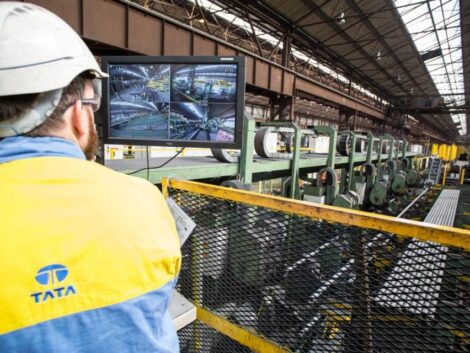New investment from Tata Steel UK
Tata Steel, the UK’s largest steelmaker, has announced it’s investing in a new mill at its Corby site in Northamptonshire.
The site, which produces vital products for everything from sports stadia and iconic skyscrapers – such as the Shard in London – to hospital beds and renewable green energy schemes around the world, processes steel made at Port Talbot in South Wales.
Now – in a further strengthening of its UK business – one of the four mills at Corby will be completely replaced with the best available technology leading to improved efficiency, reduced energy consumption and better availability for customers.
Tata Steel chief commercial officer, Anil Jhanji, said: “This key investment is part of the wider investment into our Corby site designed to give it the best possible future.
“We will continue to operate the current cold mill while the new one is built ensuring there is no impact on our customers. The new mill will also allow us to explore additional market opportunities while still serving our current customers.”
The new mill, will roll steel into tubes which can be used in construction and various engineering applications from farm machinery to bridges and heavy goods vehicles, is expected to be completed by the end of 2023.
Nigel Chudley who is leading the project said: “We have four mills on the site, the replacement will be one of the two cold mills. This will produce cold formed structural tubes in both round and rectangular sections which are used extensively in the construction and engineering industries. The mill will be capable of producing around 300,000 tonnes of an enhanced product offering to service these industries.”
Corby Works Manager, Gary Blackman, added: “This is an exciting investment which comes on the back of the recent £4m we spent in a new state-of-the-art warehouse which is nearing completion. Both projects form part of a wider £30m transformation programme we are undertaking at Corby, consolidating the site onto a smaller footprint making our operations more efficient.”








